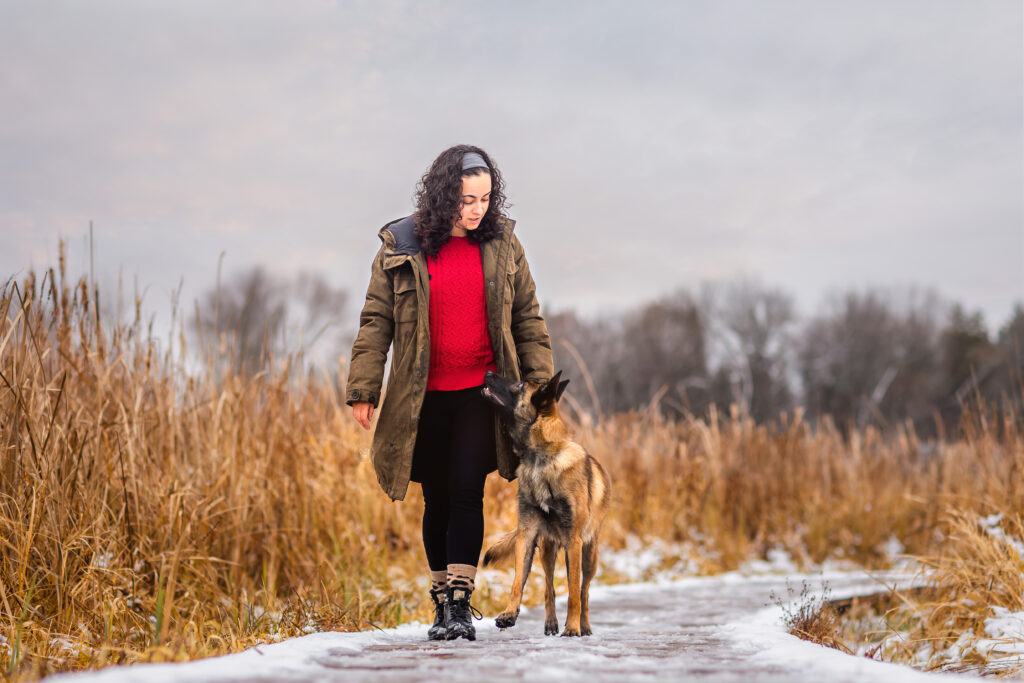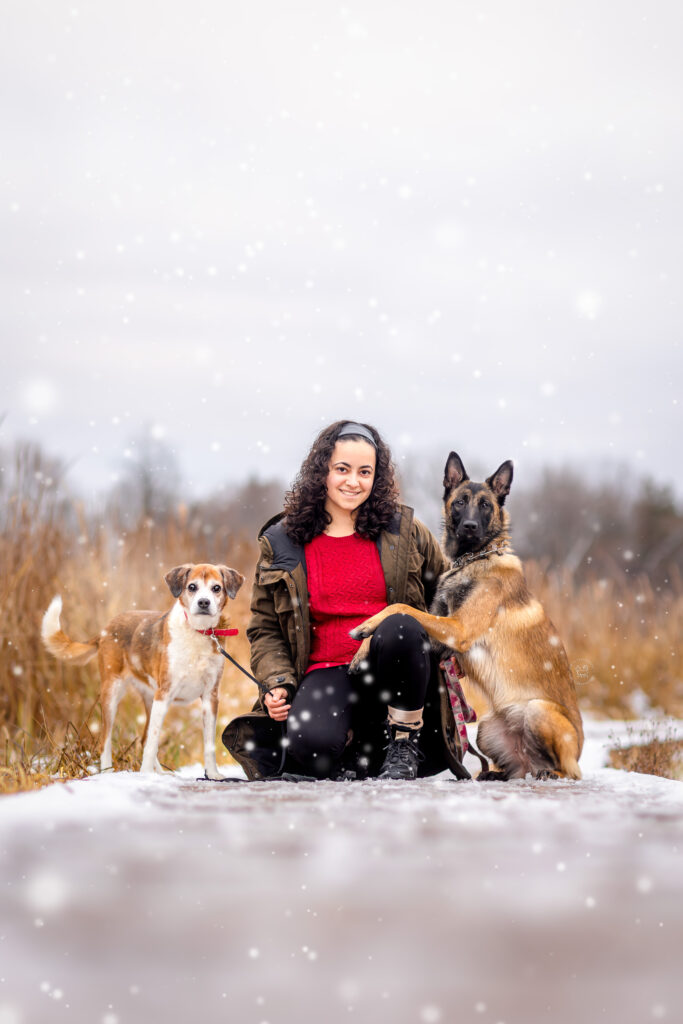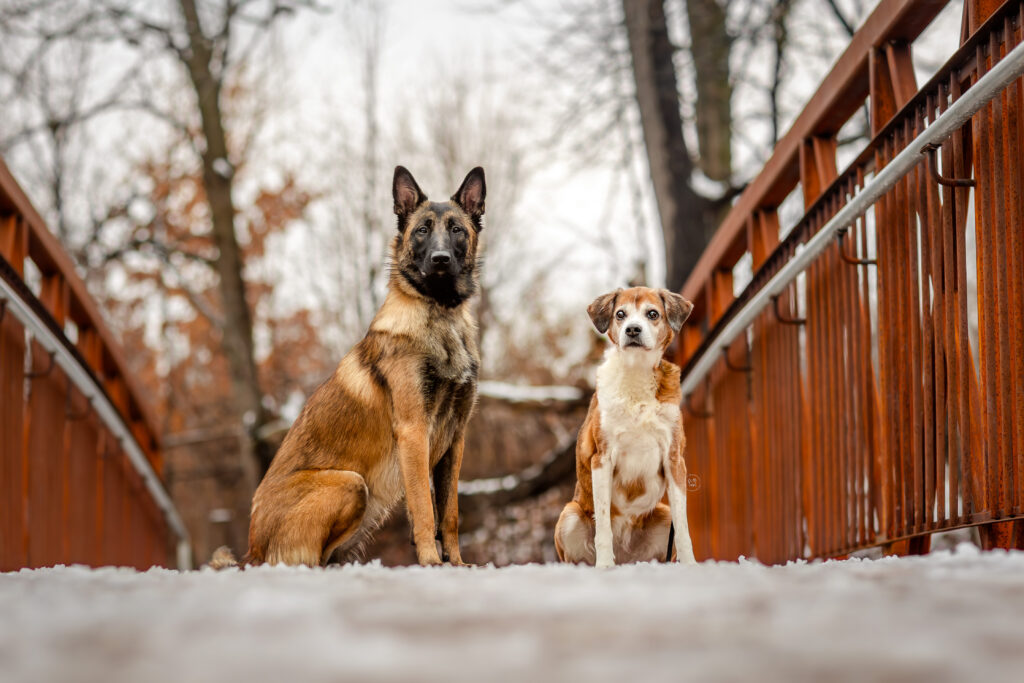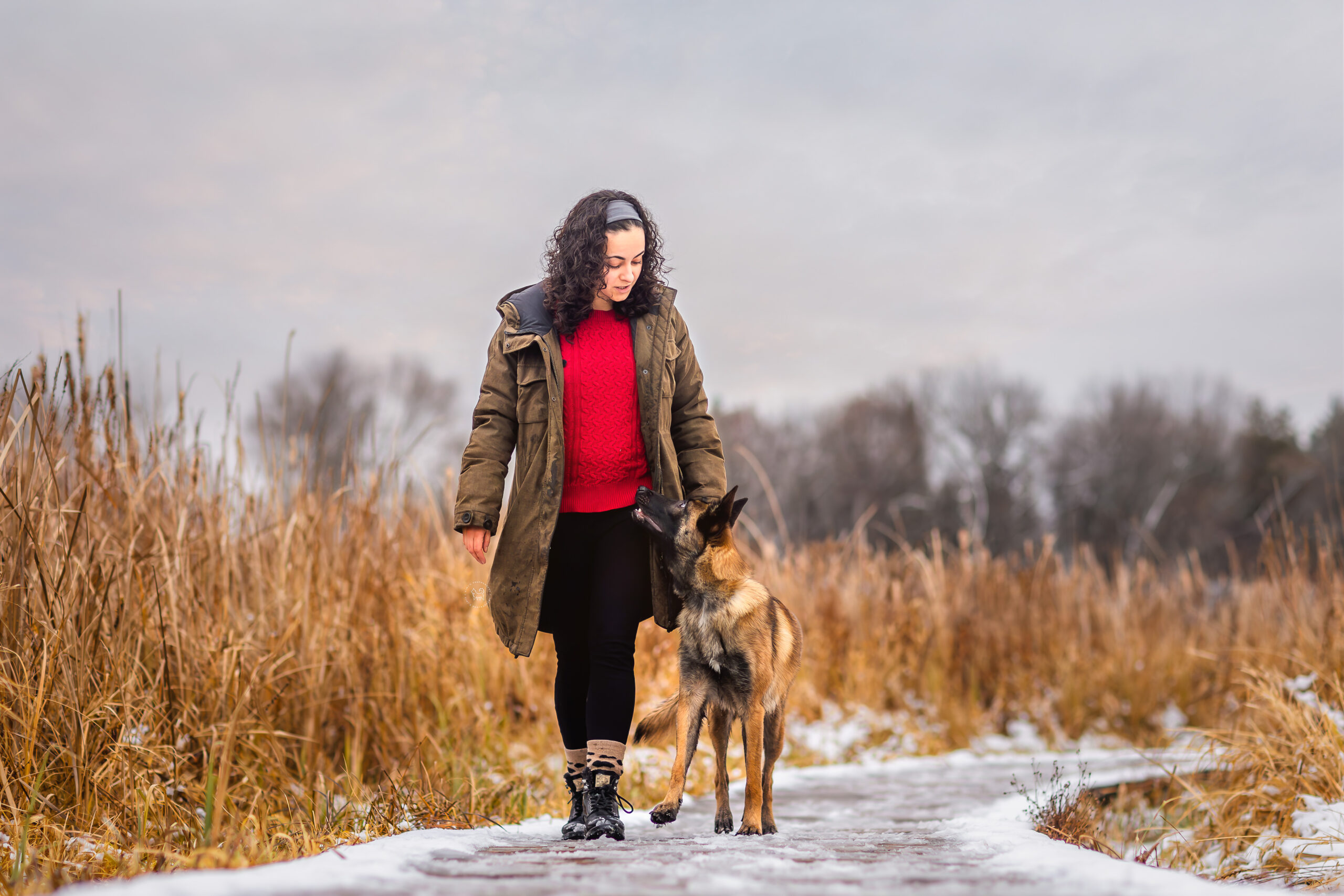The Blog
I met Vivian before she even started her dog training business, and when I learnt she got her certification in Training without Conflict, I had to learn more about it because she’s the only certified play-centric dog trainer in Ottawa and her whole approach sounded so interesting!
If you’re curious about Vivian’s new business, Dacapo Dog Club, you can take a look at my interview with her below and let me know what you think!
*Before I start, I think it’s important to say that some subjects in the dog world, especially dog training, are very controversial. If you don’t agree with Vivian’s approach, you’re allowed to have your own opinion and I think that’s completely fine! If you feel the need to express your thoughts, please do so in a civilized manner 🙂

1- Before we start, could you please tell us a bit about yourself?
Hey everyone! My name is Vivian Maganas. I was born and raised in Ottawa, Canada. I am the owner and sole trainer at Dacapo Dog Club, a dog training and care company. Dacapo Dog Club was born because I wanted to help dog owners who are struggling with their dogs. I’ve been privileged to own a number of dogs over the years and with all of them we had really great memories together. Even just little day to day things in our routine that were special. I want other owners to experience that too without a giant cloud of stress and conflict over them and their dog to ruin it all. It can be incredibly confusing, crushing and emotionally draining facing behavioural and training issues with a dog. Especially since so many view dogs as a cherished family member. So many want to do the right thing but are overwhelmed by training tips from different sources or even suggestions online and by professionals to rehome or even put down their dog. I wanted to provide training help for owners that is founded on a proven understanding of behavioural science and learning theory (fancy names for how dogs behave and how dogs learn), as well as gets real world results… all while being an incredibly fun and active process for their dog!
2- You’ve started a new dog training business in Ottawa and you’re taking a whole new approach! Could you tell us a bit more about what’s different about your training? (you often mention play based training, can you elaborate on that?)
Yeah, I would definitely love to dig into that. I’m excited to be bringing something new and BIG to Ottawa. Hang on because things are about to get science-y…
The thing I’ve seen with traditional training methods, whether balanced, force free, LIMA or anything in-between, is that they are all based on Skinnerian behaviourism. Training is almost 100% made up of reinforcing or punishing the way a dog behaves in different settings, as well as trying to control things in the environment that cause them to behave in certain ways. I’m using a lot of jargon here… but I will paint a picture that every dog owner has heard at one point or another. We are often told to reward dogs with a treat to encourage a good behaviour, or offer some sort of discipline or sign of disapproval to discourage a bad behaviour. How a dog behaves is influenced through what the dog gets or doesn’t get, and what we allow them to be around or not be around.
This simple understanding has turned into the basis of pretty much all dog training systems… but it misses important pieces of the puzzle, like dogs’ intelligence, their genetic tendencies (think breed specific quirks, like border collies wanting to herd things), social natures… and even the learning style of each individual dog. Relationships set up like this, whether with humans or dogs, do not reach the full, beautiful potential of what they could be.
Basically… rewarding good, punishing bad and controlling the things in the dog’s environment is just scratching the surface of how we can interact with and train dogs. I aim to achieve training goals with dogs through activities and games THEY enjoy doing… with a heavy focus on who each individual dog is and what it takes to give them a purpose. The results are lasting and, depending on the case, usually fast because dogs LOVE the training process and end up being far happier doing things when asked in the future.
No more begging or pulling teeth.

3- How many trainers do this in Ottawa and how did you learn about this training approach?
I am the only certified Training Without Conflict® trainer and play-centric trainer in Ottawa who specializes in getting efficient, real world results using a training approach dogs love. My hope is that it makes waves in the industry and encourages owners to start looking critically at the outcomes and emotions shown by their dogs during and after training.
I learned about this approach from an extremely talented trainer named Matt
Welch who lives in Boca Raton, Florida. I stumbled on his videos on Facebook and was completely blown away with not only what he could achieve with serious dogs with serious bite histories but HOW he went about training them. Everything he was doing was so opposite to everything I had heard about training from other top trainers. The dogs were free in his home, off leash, playing, living a great life… but were
in training at the same time. And making amazing progress, which he documents very actively. I was obsessed and needed to learn more about how he was doing this with large numbers of really intense dogs. His well-written posts always referenced a name: Ivan Balabanov. So, I looked into Ivan and saw the course he runs for dog trainers to learn his Training Without Conflict® methodology. One thing led to another and I enrolled not long after.
4- Can you share your biggest success story and how you were able to develop or correct the dog’s behavior?
It’s hard to narrow it down..even the small wins are big to me. I know they often mean so much to the dogs’ families. Even something as fundamental as not pulling during walks can be a huge game changer for someone… Some of the dogs that have touched me the most have been dogs I’ve fostered
through Belgian Shepherd Rescue Canada. One in particular, Rhea, was super special to me. She came to me right after attacking one of the other family dogs. The owners just couldn’t trust her after what had happened and didn’t want her in the home any longer. When she came she was not comfortable in her own skin and was hackles up at dogs, people, objects… even little kids. She was so lost and concerned about the environment.
I documented her case in detail on Instagram and Facebook for any who are
interested in how things progressed with her… But the long and short of it was this: things changed massively by getting her to trust and love me, and then teaching her how to get really good at something
she loved doing (playing!). This boosted her confidence and opened the door to teaching her important skills. These skills then helped her interact well socially with dogs again. We got basic obedience (sit, down, leash walking, etc..) very quickly after that… Also through play. Her world started making sense and things started falling into place in terms of her behaviour and things she needed to learn before being able to go to new home.
Seeing her transform over the months into a super stable, friendly dog that could live with other dogs was incredibly fulfilling. Now she’s living an incredible life in BC going on amazing adventures with her
dog sibling. Her life did a 180 and improved so much. That’s always counted as a huge success for me.

5- What common behaviors do you help people and their dogs with?
Any sort of behavioural problems.
Some of the most common I see are reactivity (barking and lunging, typically at people and other dogs), fearfulness, chasing things like cars and bikes, inappropriate mouthing and grabbing, and so on… Abnormal reactions to different things in the environment or inappropriate behaviours would also fall under this category. I also help owners with obedience training, such as training a dog how to walk nicely on leash, come when called around distractions and when off leash, sit and lie down on command, etc. Oh… and my favourite… teaching dogs how to play. This helps address the other things I’ve listed. Once a dog gets into playing, things really start moving in a good direction fast.
6- What’s the process to start a training program with you?
No big hoops or hurdles. It’s as simple as reaching out via text, email or social media and I will forward a link to my training application.
7- What’s your contact information (name, email, phone number, website)?
Vivian Maganas
613-304-5920
Email: dacapodogclub@gmail.com
Website: dacapodogclub.com
